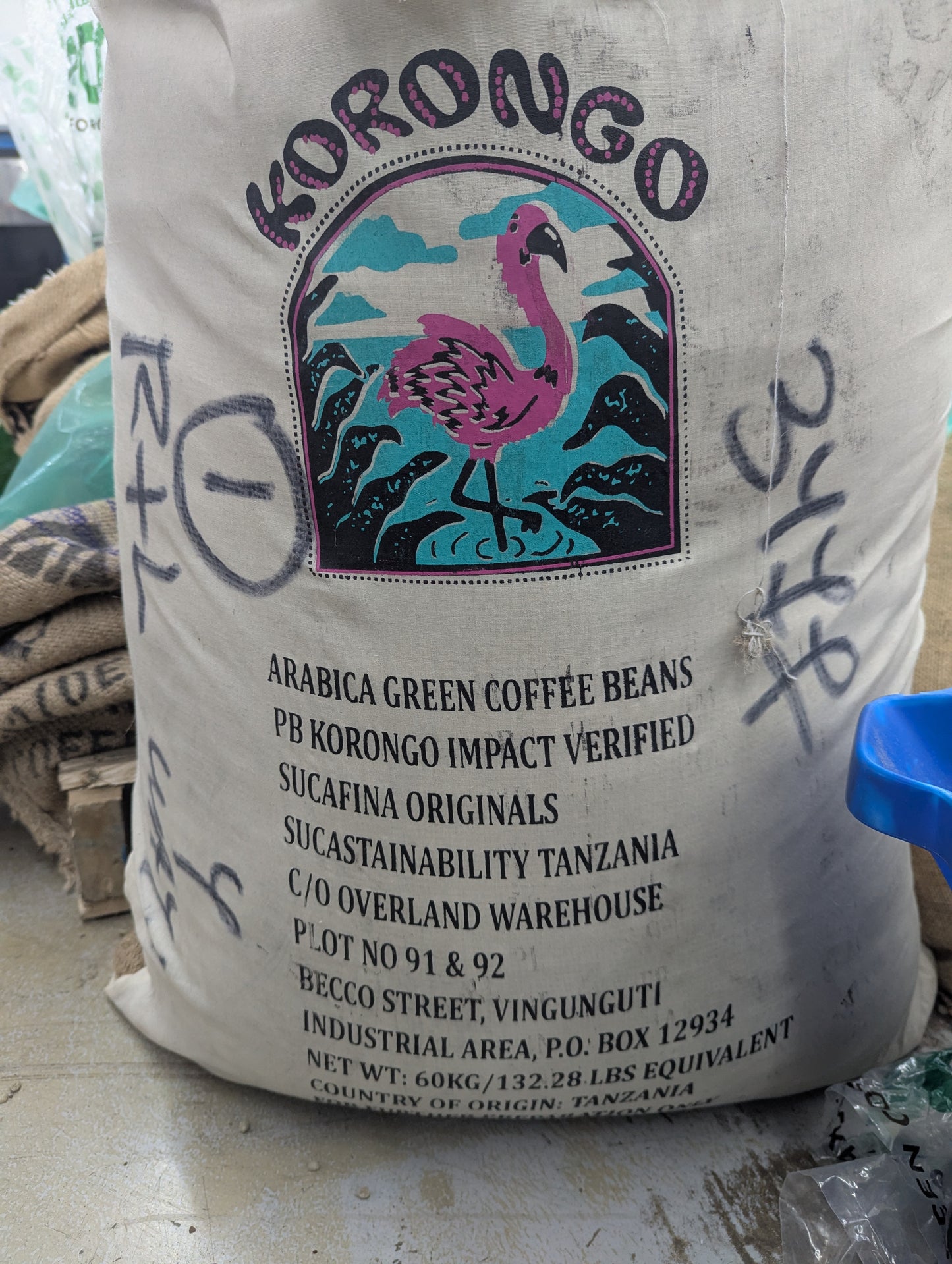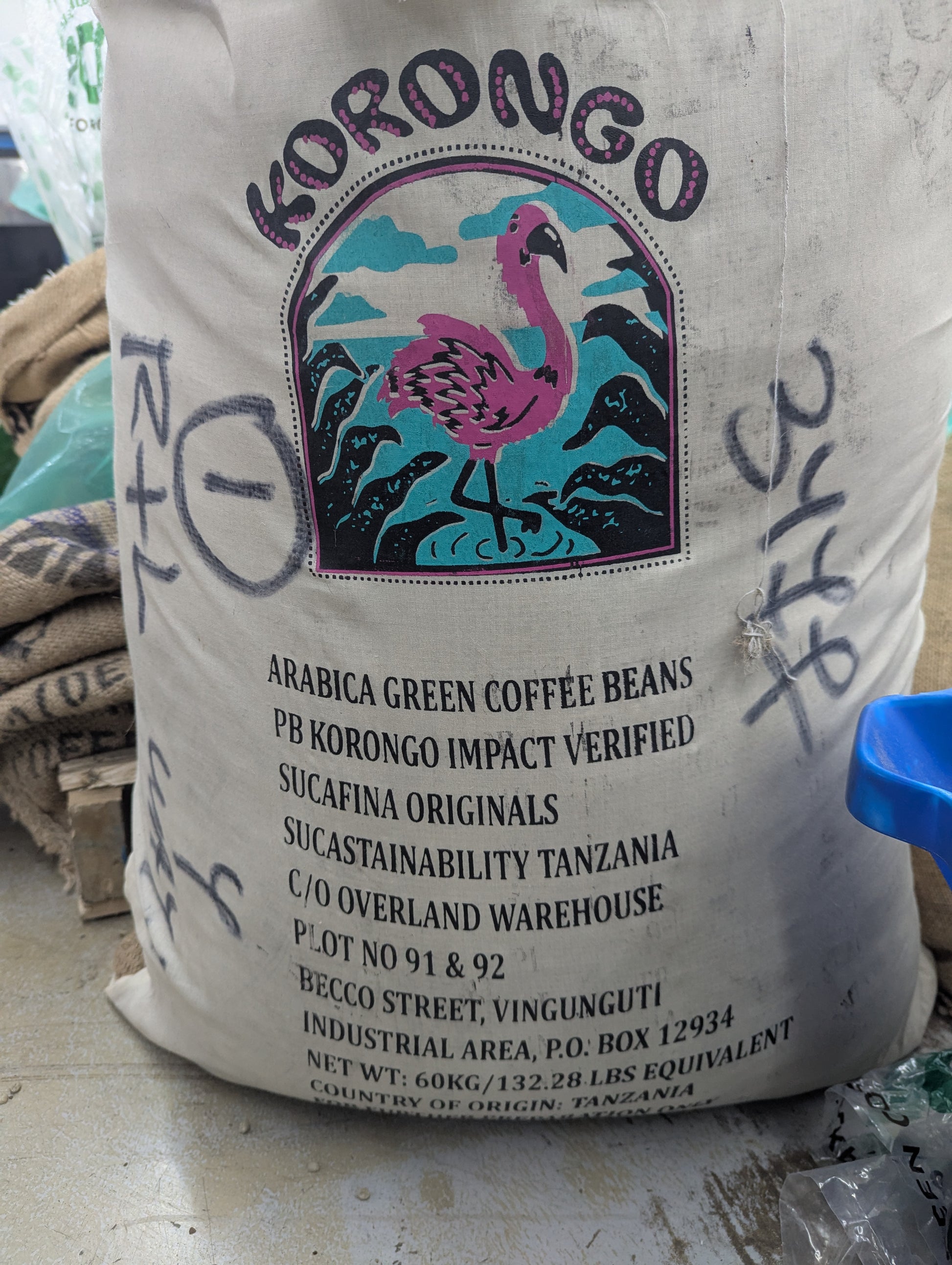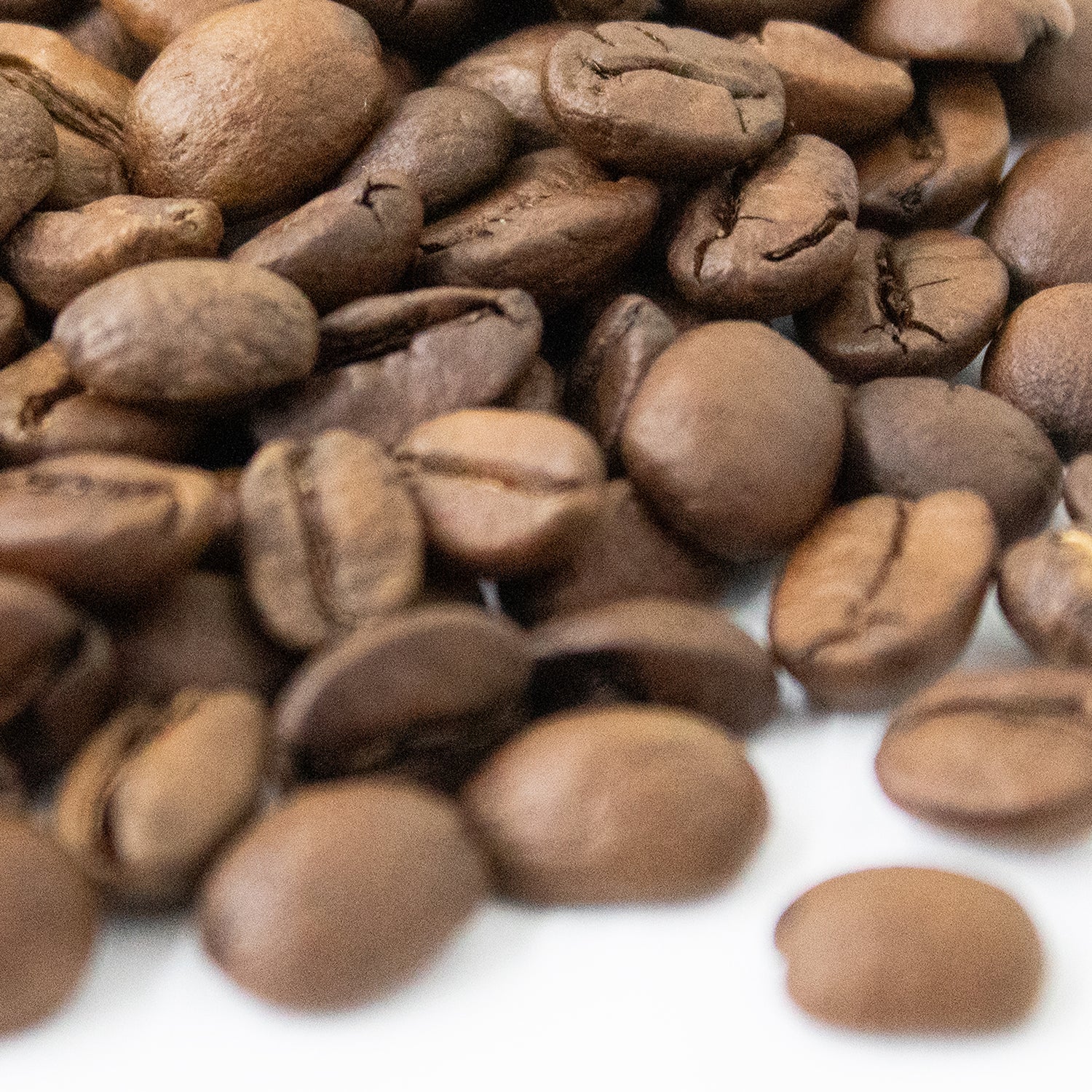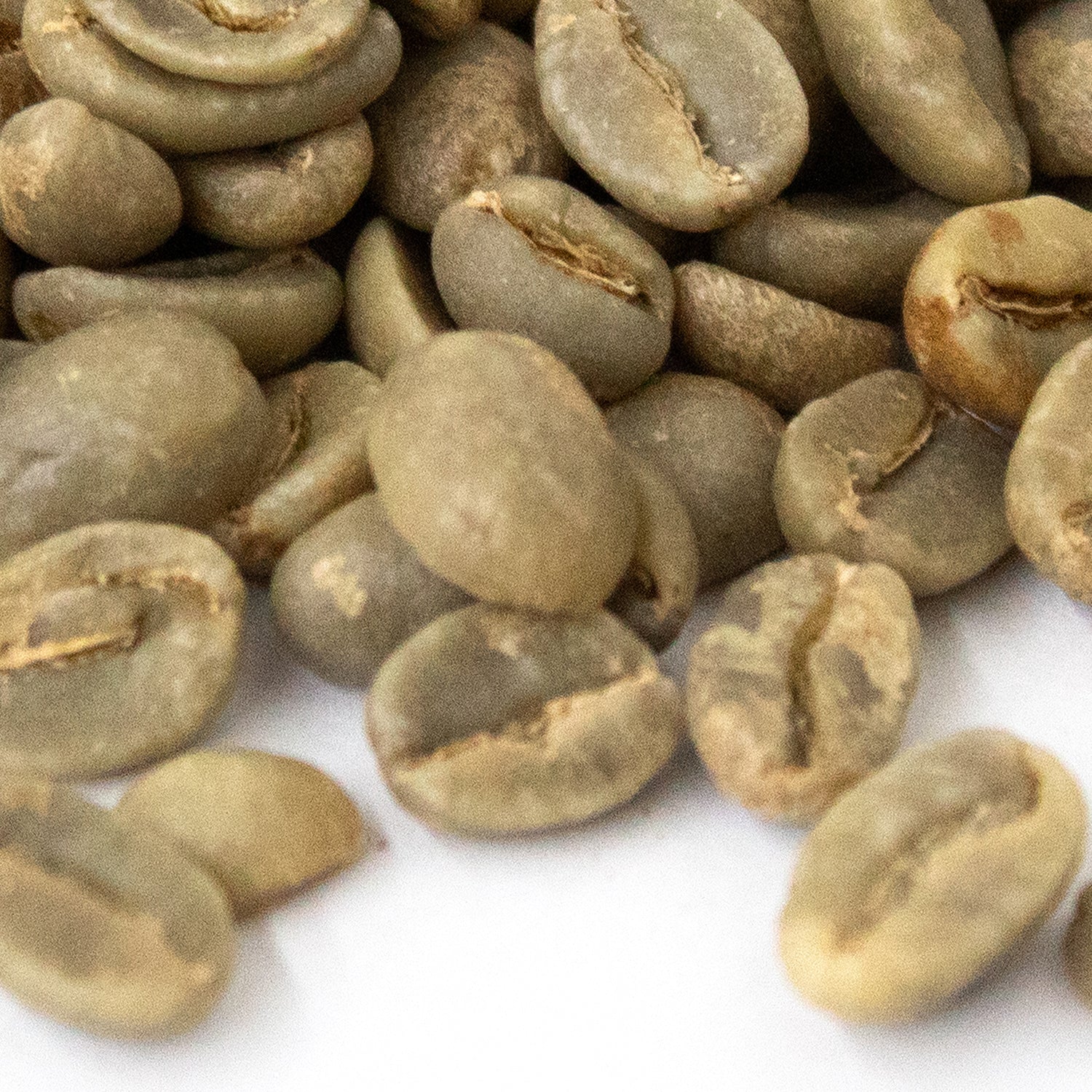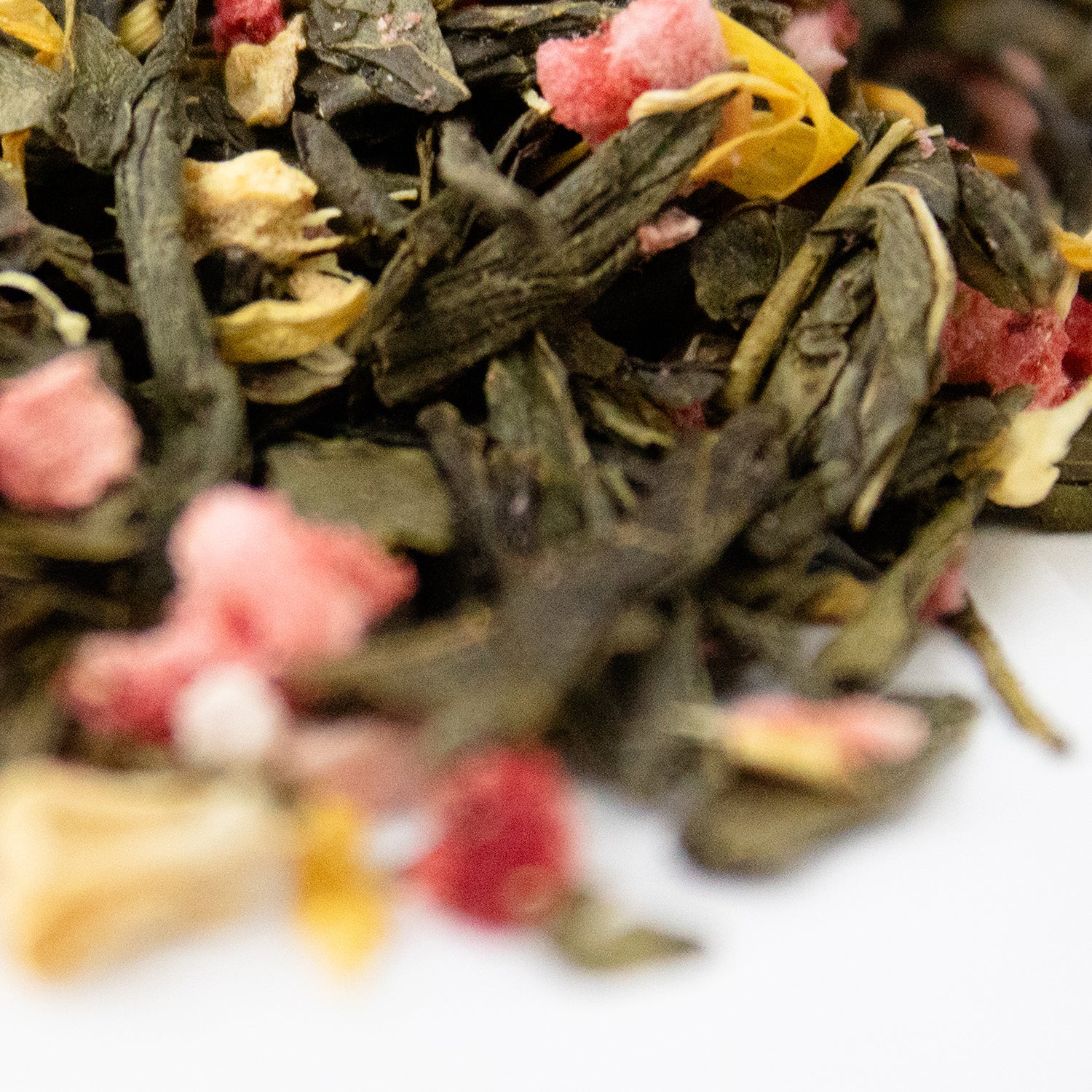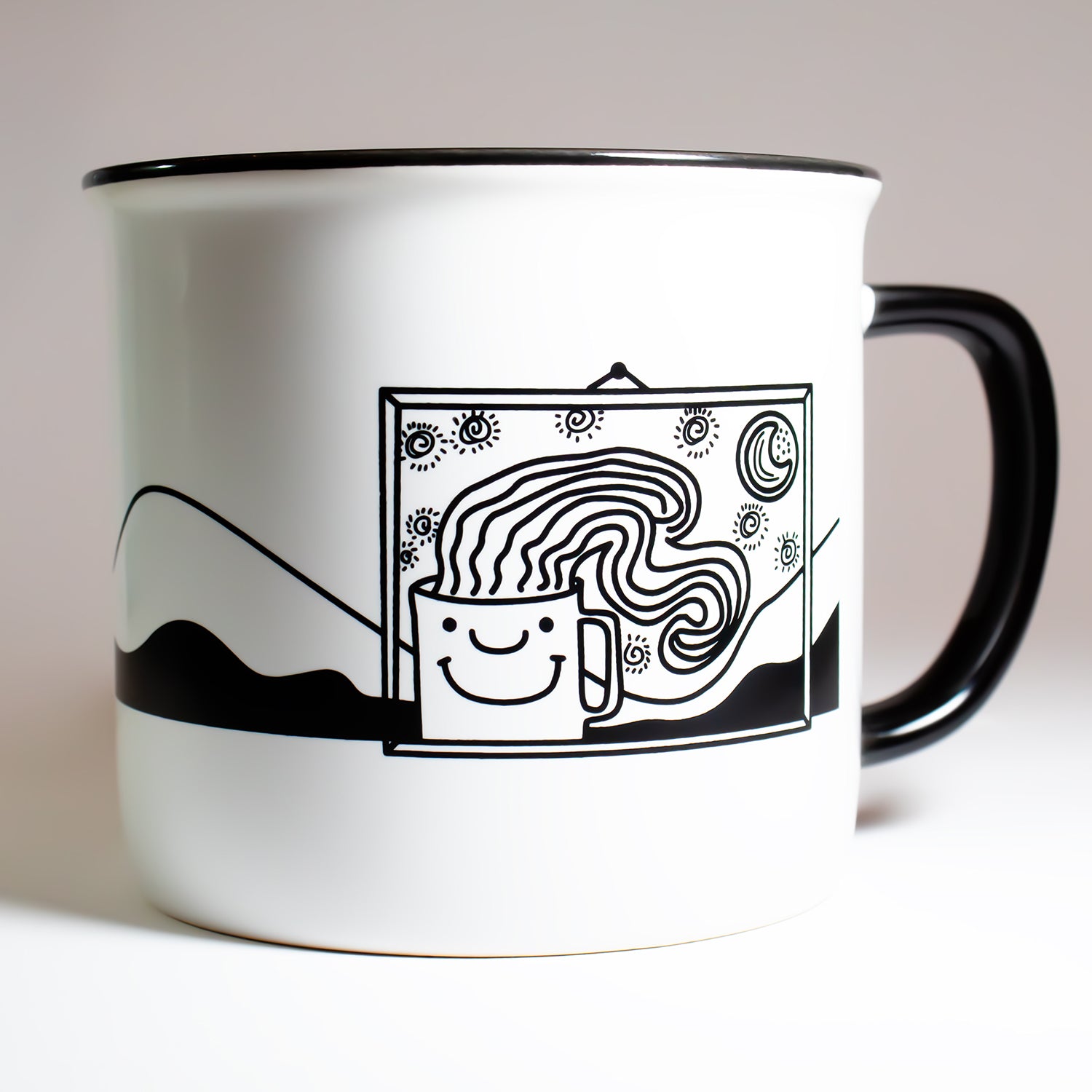African
Tanzania Korongo Initiative Peaberry
Tanzania Korongo Initiative Peaberry
Korongo is an initiative where farmers from all over Tanzania are paid directly for crops that score at least 84. and then the coffees are blended together and sold. These are largely self-sufficient households who also have goats and gardens, and sometimes work another trade on the side. Individually, they could not afford the technology to process their coffee correctly, and could not fetch a fair price for their crop.
Because it's a less traceable Tanzania as to a specific varietal or region, it's a good bean for dark roasts or one that is great for blending. It starts out tart and turns sweet. I'm tasting definite milk chocolate and a little earth in the finish on this coffee, it almost reminds me of something like a chocolate covered sweet-tart.
A Peaberry is a mutation — a flaw in the coffee gene causing two cherries to grow as one. Some suggest it gives it twice the flavor. Few coffee fans consider it a “flaw” and many seek it out. Indeed, in some countries they are rare. In Tanzania, they are more the norm. This is a wonderful coffee, if you can roast it well. Peaberries are small and dense. This bean likes high high heat, especially for the first half of the roast. But a 15 minute roast without enough heat at the beginning makes it sour. Tip: If you have a hottop, let the hottop “start” its roast for 45-60 seconds before dropping the beans in. Whatever roaster you have, if you preheat the drum hotter than normal, you’re on the right track. A good exit point for Tanzania is a bean temperature right around 400 degrees, just out of the first cracks. This will give you the sweetest cup.
USA arrival: March 2025
